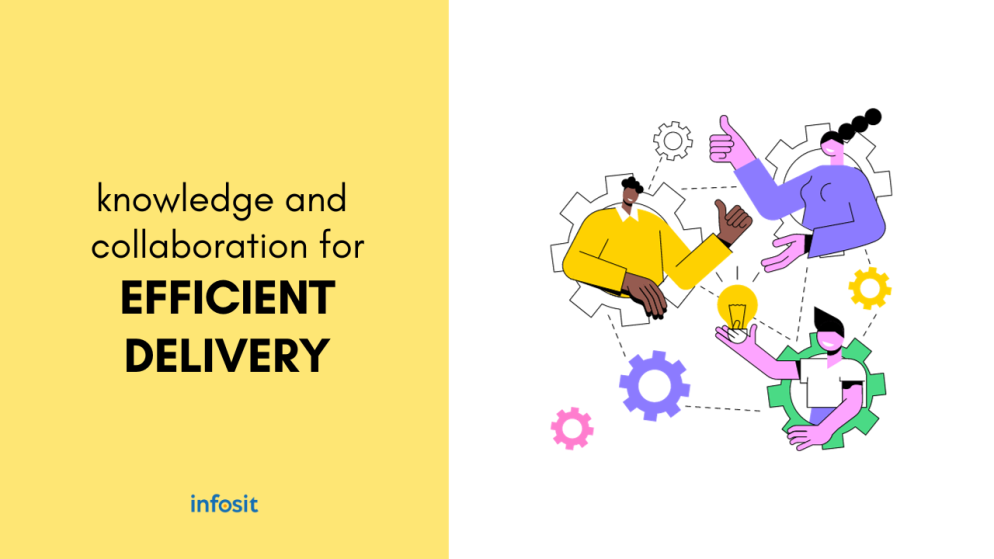Integrated software development: Adopting agile, CI/CD, and DevOps practices
Agile, CI/CD, and DevOps are three key concepts in running development projects, or, in other words, managing software development. While each has its specific characteristics, these concepts work together to enhance the software development process and deliver high-quality solutions.
Agile introduces flexibility to adapt to changes throughout the development process, CI/CD focuses on automating both the development and software delivery, while DevOps promotes knowledge exchange, collaboration, and communication.

Agile development: Adapting to ever-changing landscape
Embracing an agile approach means continually adjusting priorities, swiftly shuffling tasks, and adding new ones while upholding a commitment to quality and continuous delivery. In a dynamic business environment, planning in shorter sprints (as seen in Scrum) empowers us to adapt swiftly to change, leading to better efficiency and results. Agile approach is a must, especially in the fast-changing tech world and unpredictable business needs, where only an agile approach enables us to stay on top of the game.
At Infosit, we believe that change is the only constant. Flexibility is one of our core values and we consider it a key element of an agile business. In a dynamic environment, changes are expected and frequent. Yet, our commitment to what we do must be rock solid. From setting priorities to final delivery, responsibility is key, and we nurture it as one of our fundamental principles.
Taking an agile approach makes us more aware of project needs at different stages, resulting in more efficient software development. For instance, when working on complex software, progress in one area often opens up new perspectives. The agile approach enables us to better adapt and integrate fresh insight. The diverse experts within Infosit teams collaborate continuously and closely to speed up deliveries.
Furthermore, frequent and close collaboration with clients and external partners influences our workflow and increases efficiency, helping us steer projects in the right direction. This collaboration is all about pinpointing business needs with precision to better customize the digital solution to meet those specific requirements. This is particularly pronounced in complex software projects with multiple partners, where the client takes a more active role in the development process.

CI/CD practices: Essential for maintaining a competitive edge
In today's business landscape, waiting for the entire development process to be completed simply isn't an option. The delivery of digital solutions must be fast and keep up with business and market changes. Continuous Integration (CI) and Continuous Delivery (CD) practices facilitate agile development because software changes reach production more frequently. Instead of waiting for everyone to complete their tasks before merging everything into one code, CI anables each code change to be promptly integrated into a shared repository.
On the other hand, CD plays a pivotal role in the quick implementation of developed solutions. In a business context, swift delivery means that companies can respond more quickly to market changes, launch new features, and improve the user experience. This directly influences business results, bolsters competitive edge, and enhances customer satisfaction.
Harmonizing all aspects of CI/CD with business requirements is crucial, ensuring that the digital solution meets key business objectives. Fast delivery must be backed by a high-quality and stable software solution. Only such a solution can help save costs, speed up processes, and deliver better business results.
The need for fast delivery of software changes comes from the ever-changing business landscape, where strategies often change and the market demands quick responses. Consequently, continuous development and fine-tuning of software, along with its rapid delivery, are essential for maintaining a competitive edge and hitting those business targets.

DevOps culture: Diverse know-how and business acumen
It is extremely important to us that everyone at Infosit has a clear understanding of the purpose of their work. Our organization and processes are designed in such a way that our people can comprehend the overall project and recognize how their work contributes to its success. This awareness is one of the most important elements of our business culture.
Building on the importance of understanding one's role, our organization embraces a DevOps culture. This culture aims to eliminate the limits that come with being too specialized or boxed into specific roles. It promotes cross-training teams in each other's skills, enhancing each team member's ability to appreciate and participate in the tasks of others. This practice results in improved collaboration and communication, enhancing efficiency and speeding up software delivery.
In our organization, developer training is focused on acquiring a broad spectrum of knowledge and understanding how their work impacts the business. We are putting effort into honing soft skills through training and workshops. Each person has their "buddy," a designated colleague who’s there to support them and answer any questions. Sometimes, this will be over a cup of coffee. This type of setup promotes collaboration and collective progress within the organization.
Integrated concepts for swift and high-quality software delivery
Although agile, CI/CD and DevOps are three different concepts, they complement and support each other, forming an integrated approach to software development. The combination of these practices enables development teams to achieve high quality standards, fast and reliable deliveries, thereby meeting the needs of a dynamic software development environment.
Got a project? Get in touch!
If you’re looking for a results-driven, innovative software development partner to help capitalize on new, profitable opportunities, reinvent your brand, or deliver incremental value to your business, we can help.